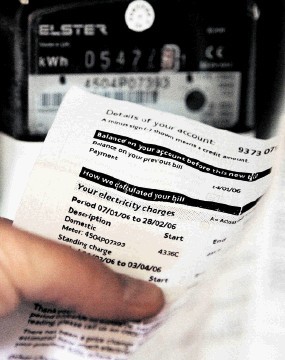
Business Minister Greg Clark has urged the energy regulator to get on and use its powers to cap poor value standard tariffs for millions of consumers.
Following Theresa May’s promise in her Conservative Party conference speech to end “rip off” charges once and for all, Mr Clark said prices could start falling this winter if Ofgem acted straight away.
Ministers are due to publish a draft bill next week enabling Ofgem to cap standard variable tariffs (SVTs) across the whole of the market.
However following a ruling by the Competition and Markets Authority (CMA) that consumers were being overcharged by £1.4 billion a year, Mr Clark said Ofgem was already in a position to act.
He said the legislation was intended to provide “legal back-up” for the regulator if the energy companies tried to fight it through the courts.
“Ofgem have been concerned that if they were to exercise their powers without legislation that they would suffer an appeal from the energy companies and that it would be locked down in legal battles,” Mr Clark told the BBC Radio 4 programme.
“My view is that I would be surprised if energy companies did want to battle this through the courts. So what we have said is that it would be better, because it would happen much quicker, if they used these powers straight away.
“If they need legal back-up I think there is strong consensus in Parliament for that. So we will publish legislation and we will invite the whole House to endorse this so that they have that legal certainty.”
However Iain Conn, chief executive of Centrica, one of the “Big Six“ suppliers, urged the Government to think again, warning that a price cap would put paid to many cheap deals.
“We don’t support price caps. There is clear evidence that they don’t work. They tend to limit choice, reduce competition and prices tend to bunch around the cap,” he told the Today programme.
“We have seen it in many markets where the cheap deals go because the mechanism for people to make money out of the market is changed.”
He rejected the CMA finding that customers on SVTs were being overcharged by £1.4 billion a year.
“It clearly isn’t right as it is more than the entire profits made in the whole market,” he said.
He said the real solution was to get rid of SVTs – which can run indefinitely – and replace them with fixed-term tariffs.
“Rather than cap them – which will ironically keep them going – we believe the standard variable tariff should come to an end for good. We think it is better for the long term and it will solve these problems,” he said.
Recommended for you
